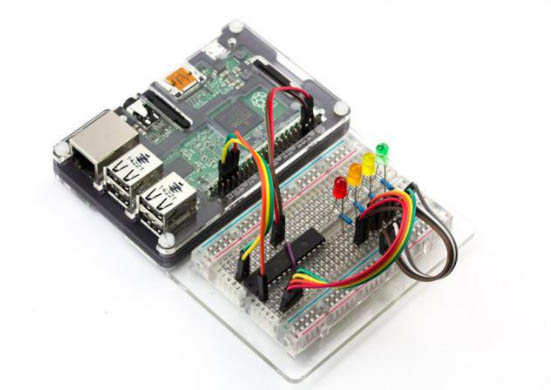1. In recent years, the issue of leading cadres switching to domestic buses has aroused widespread concern in society.
2. Previously, Guangzhou City selected GAC Trumpchi as official vehicles, and Shenzhen opted for BYD electric vehicles for commuting.
3. The localization of leading cadres’ buses involves more than just bus reform; it is a crucial step to reduce waste and offers a significant development opportunity for the automotive electronics PCB industry.
4. New bus procurement regulations and their impact on local car companies.
5. Although the “Party and Government Organs Strictly Saving and Opposing Waste Regulations” clearly stipulate that “general official vehicles shall be canceled, and necessary vehicles for law enforcement, confidential communications,

1. Emergency and special professional technical vehicles, as well as other vehicles equipped according to regulations, shall be retained. However, the executive deputy general manager of GAC Toyota believes: “From an overall perspective, the cancellation of general official vehicles will have minimal impact on the overall automobile market.” According to expert statistics, the number of general buses cancelled each year may be around 300,000, accounting for only 16 million of the total, which is less than 2% of all vehicles. From another perspective, the demand for individual civil servants to purchase vehicles still exists, and the large consumer base is a positive indicator for local car companies.
2. New regulations are urging small and medium-sized car companies to diversify their markets. In response to the significant demand for official travel in my country, this new regulation on official vehicle procurement has generated a strong response. Over the years, the monopoly of public vehicles by “domestic joint venture foreign brands” may be disrupted, which can be said to curb the dominance of foreign brand official vehicles to some extent. This development in China is conducive to the growth of local small and medium-sized car companies. Currently, domestic official car electronics experts have already begun to take precautions. Some have chosen to collaborate with domestic authoritative PCB copy board experts, such as Shenzhen Pengxin Integrated Circuit Co., Ltd., to grasp the core technology of existing high-end buses in advance. Through digestion, absorption, and innovation, they aim to achieve upgrades and transformations to cater to a diversified market.
3. Bus PCB copy boards help save substantial costs and maintenance expenses. A PCB copy board is a type of circuit board used for reverse engineering. It allows for the extraction of a complete set of technical data, including PCB files, BOM lists, schematic files, and PCB silk screen files of any high-end electronic product, using specialized technical equipment. This data can be used for product restoration, replication, and secondary development. If you replace a mid-range joint venture brand car with a domestic car of the same grade using a PCB copy board, you can save at least 30%. Conversely, switching to an imported car will increase costs by 50%. Additionally, the maintenance and repair costs for joint venture and imported cars are more than double those of domestic cars. If you consider national buses collectively, the cost savings could amount to tens of billions. Clearly, PCB copy boards are a highly advantageous method for reducing bus research and development costs.
4. PCB copy boards and the localization of bus in-vehicle electronics. Currently, bus reform is deepening, and the corresponding on-board electronics are continuously being localized. To keep pace with international brands, domestic official vehicles need to accelerate the process of digestion, absorption, and re-innovation through PCB copy boards. This will help elevate the performance, safety, and comfort of domestic vehicles to a higher level.
2. Previously, Guangzhou City selected GAC Trumpchi as official vehicles, and Shenzhen opted for BYD electric vehicles for commuting.
3. The localization of leading cadres’ buses involves more than just bus reform; it is a crucial step to reduce waste and offers a significant development opportunity for the automotive electronics PCB industry.
4. New bus procurement regulations and their impact on local car companies.
5. Although the “Party and Government Organs Strictly Saving and Opposing Waste Regulations” clearly stipulate that “general official vehicles shall be canceled, and necessary vehicles for law enforcement, confidential communications,

1. Emergency and special professional technical vehicles, as well as other vehicles equipped according to regulations, shall be retained. However, the executive deputy general manager of GAC Toyota believes: “From an overall perspective, the cancellation of general official vehicles will have minimal impact on the overall automobile market.” According to expert statistics, the number of general buses cancelled each year may be around 300,000, accounting for only 16 million of the total, which is less than 2% of all vehicles. From another perspective, the demand for individual civil servants to purchase vehicles still exists, and the large consumer base is a positive indicator for local car companies.
2. New regulations are urging small and medium-sized car companies to diversify their markets. In response to the significant demand for official travel in my country, this new regulation on official vehicle procurement has generated a strong response. Over the years, the monopoly of public vehicles by “domestic joint venture foreign brands” may be disrupted, which can be said to curb the dominance of foreign brand official vehicles to some extent. This development in China is conducive to the growth of local small and medium-sized car companies. Currently, domestic official car electronics experts have already begun to take precautions. Some have chosen to collaborate with domestic authoritative PCB copy board experts, such as Shenzhen Pengxin Integrated Circuit Co., Ltd., to grasp the core technology of existing high-end buses in advance. Through digestion, absorption, and innovation, they aim to achieve upgrades and transformations to cater to a diversified market.
3. Bus PCB copy boards help save substantial costs and maintenance expenses. A PCB copy board is a type of circuit board used for reverse engineering. It allows for the extraction of a complete set of technical data, including PCB files, BOM lists, schematic files, and PCB silk screen files of any high-end electronic product, using specialized technical equipment. This data can be used for product restoration, replication, and secondary development. If you replace a mid-range joint venture brand car with a domestic car of the same grade using a PCB copy board, you can save at least 30%. Conversely, switching to an imported car will increase costs by 50%. Additionally, the maintenance and repair costs for joint venture and imported cars are more than double those of domestic cars. If you consider national buses collectively, the cost savings could amount to tens of billions. Clearly, PCB copy boards are a highly advantageous method for reducing bus research and development costs.
4. PCB copy boards and the localization of bus in-vehicle electronics. Currently, bus reform is deepening, and the corresponding on-board electronics are continuously being localized. To keep pace with international brands, domestic official vehicles need to accelerate the process of digestion, absorption, and re-innovation through PCB copy boards. This will help elevate the performance, safety, and comfort of domestic vehicles to a higher level.


